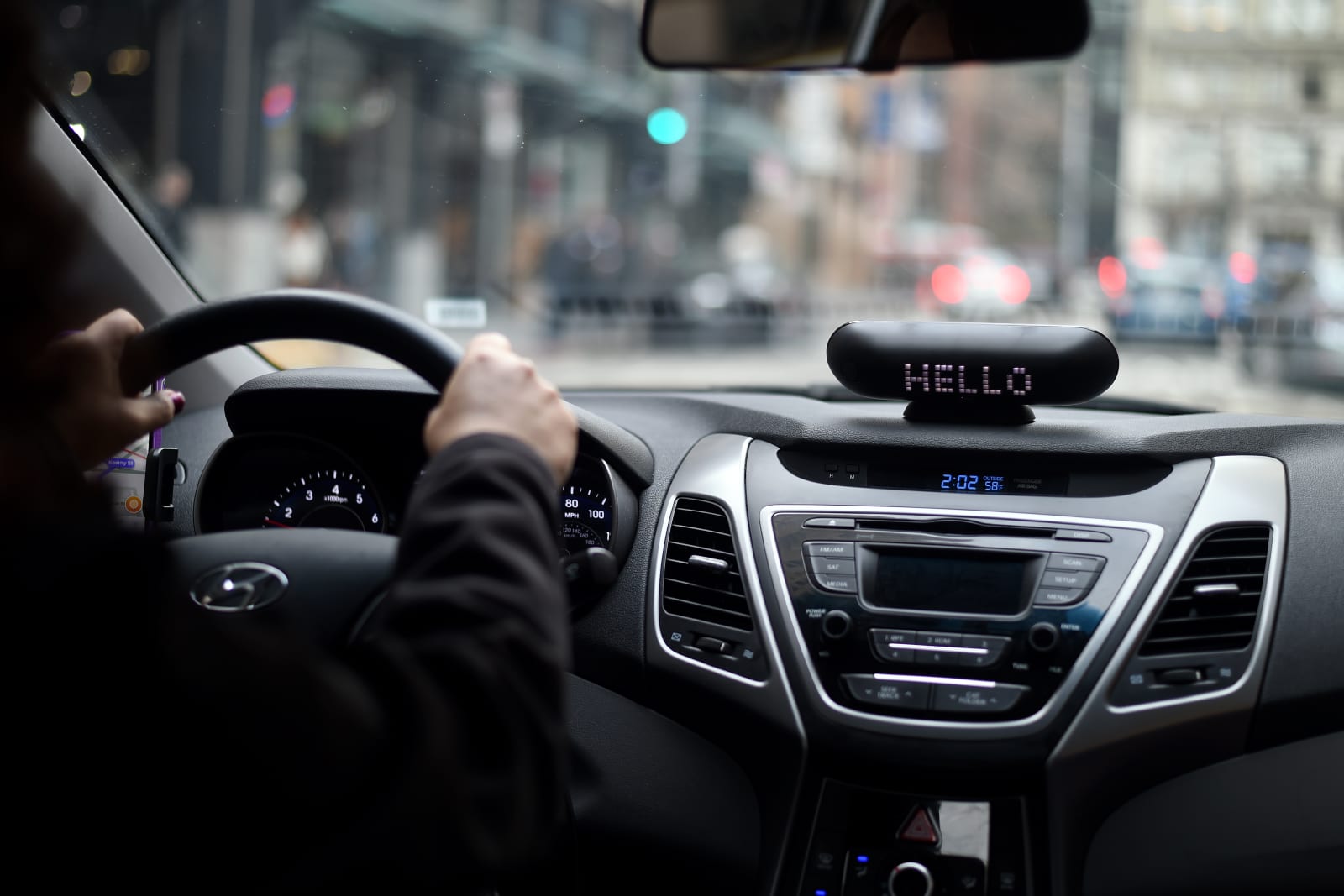Posts Tagged: Advances
Hitting the Books: NASA’s Kathy Sullivan and advances in orbital personal hygiene
For the first couple decades of its existence, NASA was the epitome of an Old Boys Club; its astronaut ranks pulled exclusively from the Armed Services’ test pilot programs which, at that time, were exclusively staffed by men. Glass ceilings weren’t the only things broken when Sally Ride, Judy Resnik, Kathy Sullivan, Anna Fisher, Margaret “Rhea” Seddon and Shannon Lucid were admitted to the program in 1978 — numerous spaceflight systems had to be reassessed to accommodate a more diverse workforce. In The Six: The Untold Story of America’s First Women Astronauts, journalist Loren Grush chronicles the numerous trials and challenges these women faced — from institutional sexism to enduring survival training to navigating the personal pressures that the public life of an astronaut entails — in their efforts to reach orbit.
Adapted from The Six: The Untold Story of America’s First Women Astronauts by Loren Grush. Copyright © 2023 by Loren Grush. Excerpted with permission by Scribner, a division of Simon & Schuster, Inc.
Above the Chisos Mountains sprawling across Big Bend National Park in West Texas, Kathy [Sullivan, PhD, third woman to fly in space and future head of the NOAA] sat in the back seat of NASA’s WB-57F reconnaissance aircraft as it climbed higher into the sky. The pilot, Jim Korkowski, kept his eye on the jet’s altimeter as they ascended. They’d just passed sixty thousand feet, and they weren’t done rising. It was a dizzyingly high altitude, but the plane was made to handle such extremes.
Inside the cockpit, both Kathy and Jim were prepared. They were fully outfitted in the air force’s high-altitude pressure suits. To the untrained observer, the gear looked almost like actual space suits. Each ensemble consisted of a bulky dark onesie, with thick gloves and a thick helmet. The combination was designed to apply pressure to the body as the high-altitude air thinned away and made it almost impossible for the human body to function.
The duo eventually reached their target height: 63,300 feet. At that altitude, their pressure suits were a matter of life and death. The surrounding air pressure was so low that their blood could start to boil if their bodies were left unprotected. But with the suits on, it was an uneventful research expedition. Kathy took images with a specialized infrared camera that could produce color photos, and she also scanned the distant terrain in various wavelengths of light.
They spent just an hour and a half over Big Bend, and the flight lasted just four hours in total. While it may have seemed a quick and easy flight, Kathy made history when she reached that final altitude above West Texas on July 1, 1979. In that moment, she flew higher than any woman ever had, setting an unofficial world aviation record.
The assignment to train with the WB-57 had scared her at first, but Kathy wound up loving those high-flying planes. “That was very fun, other than this little bit of vague concern that, ‘Hope this doesn’t mean I’m falling off the face of the Earth,’” Kathy said. The assignment took her on flights up north to Alaska and down south to Peru. As she’d hoped, she received full qualification to wear the air force’s pressure suits, becoming the first woman to do so. Soon, donning a full-body suit designed to keep her alive became second nature to her.
NASA officials had also sought her out to test a new piece of equipment they were developing for future Shuttle astronauts, one that would let people relieve themselves while in space. During the Apollo and Gemini eras, NASA developed a relatively complex apparatus for astronauts to pee in their flight suits. It was, in essence, a flexible rubber cuff that fit around the penis, which then attached to a collection bag. The condom-like cuffs came in “small,” “medium,” and “large” (though Michael Collins claimed the astronauts gave them their own terms: “extra large,” “immense,” and “unbelievable”). It was certainly not a foolproof system. Urine often escaped from beneath the sheath.
Cuffs certainly weren’t going to work once women entered the astronaut corps. While the Space Shuttle had a fancy new toilet for both men and women to use, the astronauts still needed some outlet for when they were strapped to their seats for hours, awaiting launch or reentry. And if one of the women was to do a spacewalk, she’d need some kind of device during those hours afloat. So, NASA engineers created the Disposable Absorption Containment Trunk (DACT). In its most basic form it was . . . a diaper. It was an easy fix in case astronauts needed to urinate while out of reach of the toilet. It was designed to absorb fecal matter, too, though the women probably opted to wait until they reached orbit for that.
Kathy was the best person to test it out. Often during her high-altitude flights, she’d be trapped in her pressure suit for hours on end, creating the perfect testing conditions to analyze the DACT’s durability. It worked like a charm. And although the first male Shuttle fliers stuck to the cuffs, eventually the DACT became standard equipment for everyone.
After accumulating hundreds of hours in these pressure suits, Kathy hoped to leverage her experience into a flight assignment, one that might let her take a walk outside the Space Shuttle one day. As luck would have it, she ran into Bruce McCandless II in the JSC gym one afternoon. He was the guy to know when it came to spacewalks. NASA officials had put him in charge of developing all the spacewalk procedures and protocols, and at times he seemed to live in the NASA pools. Plus, he was always conscripting one of Kathy’s classmates to do simulated runs with him in the tanks. Kathy wanted to be next. Projecting as much confidence as she could, she asked him to consider her for his next training run.
It worked. Bruce invited Kathy to accompany him to Marshall Space Flight Center in Alabama to take a dive in the tank there. The two would be working on spacewalk techniques that might be used one day to assemble a space station. However, the Space Shuttle suits still weren’t ready to use yet. Kathy had to wear Apollo moonwalker Pete Conrad’s suit, just like Anna had done during her spacewalk simulations. But while the suit swallowed tiny Anna, it was just slightly too small for Kathy, by about an inch. When she put it on, the suit stabbed her shoulders, while parts of it seemed to dig into her chest and back. She tried to stand up and nearly passed out. It took all her strength to walk over to the pool before she flopped into the tank. In the simulated weightless environment, the pain immediately evaporated. But it was still a crucial lesson in space-suit sizes. The suits have to fit their wearers perfectly if the spacewalk is going to work.
The session may have started off painfully, but once she began tinkering with tools and understanding how to maneuver her arms to shift the rest of her body, she was hooked. She loved spacewalking so much that she’d go on to do dozens more practice dives throughout training.
But it wasn’t enough to practice in the pool. She wanted to go orbital.
This article originally appeared on Engadget at https://www.engadget.com/hitting-the-books-the-six-loren-grush-scribner-143032524.html?src=rss
Engadget is a web magazine with obsessive daily coverage of everything new in gadgets and consumer electronics
California advances bill offering protections to gig economy workers

Engadget RSS Feed
Apple Advances Health Apps with CareKit
Apple today announced CareKit, a new software framework designed to help developers enable people to actively manage their own medical conditions. iPhone apps using CareKit make it easier for individuals to keep track of care plans and monitor symptoms and medication, providing insights that help people better understand their own health. “We believe that giving individuals the tools to understand what is happening with their health is incredibly powerful, and apps designed using CareKit make this a reality by empowering people to take a more active role in their care,” said Jeff Williams, Apple’s chief operating officer.
Apple Hot News
